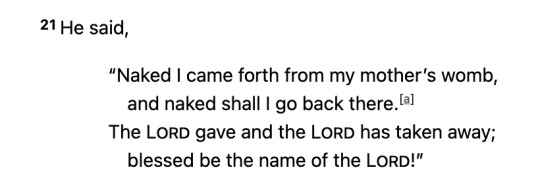#NABRE
Text

“There is an appointed time for everything, and a time for every affair under the heavens.”
Ecclesiastes 3:1
#christianity#faith#theology#religion#christian#catholic#catholicism#spirituality#bible verse#daily bible verse#holy bible#bible study#daily bible study#scripture#daily scripture#NABRE#anglo catholic#anglican#picture is NOT mine
733 notes
·
View notes
Text
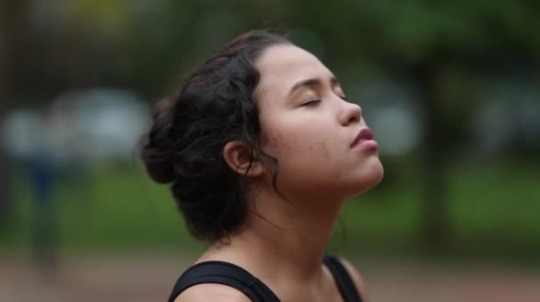
Trust in God
1 For the leader; with stringed instruments. A psalm of David.
I
2 Answer me when I call, my saving God.
When troubles hem me in, set me free;
take pity on me, hear my prayer.
II
3 How long, O people, will you be hard of heart?
Why do you love what is worthless, chase after lies?
Selah
4 Know that the Lord works wonders for his faithful one;
the Lord hears when I call out to him.
5 Tremble and sin no more;
weep bitterly within your hearts,
wail upon your beds,
6 Offer fitting sacrifices
and trust in the Lord.
III
7 Many say, “May we see better times!
Lord, show us the light of your face!”
Selah
8 But you have given my heart more joy
than they have when grain and wine abound.
9 In peace I will lie down and fall asleep,
for you alone, Lord, make me secure.
— Psalm 4 | New American Bible Revised Edition (NABRE)
New American Bible, revised edition © 2010, 1991, 1986, 1970 Confraternity of Christian Doctrine, Inc. All Rights Reserved.
Cross References: Genesis 26:22; Leviticus 25:18; Numbers 6:26; Deuteronomy 12:10; Deuteronomy 33:19; Job 7:7; Psalm 3:3-4; Psalm 6:8-9; Psalm 12:2; Psalm 37:3; Psalm 17:6; Psalm 63:6; Isaiah 9:3; Acts 14:17; Ephesians 4:26
#plea#deliverance#enemies#Psalm 4#Book of Psalms#Old Testament#NABRE#New American Bible Revised Edition#Confraternity of Christian Doctrine Inc.
14 notes
·
View notes
Text
This brief poem is rich in layered meanings. The “dark cloud” in which the Lord intends to dwell refers not only to the cloud that filled the Temple but to the darkness of the windowless holy of holies and to the mystery of the God enthroned invisibly upon the cherubim as well. Solomon calls the Temple he offers God a 'firm base', using terminology similar to that used for God’s firm establishment of Solomon’s own kingdom. Finally, Solomon intends this as a place for God to yashab, but the Hebrew word yashab can mean “to dwell” or “to sit.” In other words, the Temple can be understood both as a place where God resides and as the earthly foundation of God’s [true] heavenly throne. The double meaning allows an understanding of the divine Presence as both transcendent and graciously immanent.
NABRE Bible; Commentary on 1 Kings 8:12-13
#biblical commentary#1 kings#king solomon#divine darkness#reflect on this#the transcendence of God#hebrew#biblical poetry#the first temple#nabre
5 notes
·
View notes
Text
Day 1 Gen 1-3
Day 2 Gen 4-7
Day 3 Gen 8-11
Day 4 Job 1-5
Day 5 Job 6-10
Day 6 Job 11-15
Day 7 Job 16-21
Day 8 Job 22-27
Day 9 Job 28-31
Day 10 Job 32-37
Day 11 Job 38-42
Day 12 Gen 12-16
Day 13 Gen 17-20
Day 14 Gen 21-23
Day 15 Gen 24-25
Day 16 Gen 26-28
Day 17 Gen 29-31
Day 18 Gen 32-34
Day 19 Gen 35-37
Day 20 Gen 38-40
Day 21 Gen 41-42
Day 22 Gen 43-45
Day 23 Gen 46-47
Day 24 Gen 48-50
Day 25 Ex 1-3
Day 26 Ex 4-6
Day 27 Ex 7-9
Day 28 Ex 10-12
Day 29 Ex 13-15
Day 30 Ex 16-19
Day 31 Ex 20-23
Day 32 Ex 24-27
Day 33 Ex 28-30
Day 34 Ex 31-33
Day 35 Ex 34-36
Day 36 Ex 37-40
Day 37 Lev 1-4
Day 38 Lev 5-7
Day 39 Lev 8-9
Day 40 Lev 10-11
Day 41 Lev 12-13
Day 42 Lev 14
Day 43 Lev 15-17
Day 44 Lev 18-20
Day 45 Lev 21-23
Day 46 Lev 24-25
Day 47 Lev 26-27
Day 48 Num 1-3
Day 49 Num 4-6
Day 50 Num 7-8
Day 51 Num 9-11
Day 52 Num 12-14
Day 53 Num 15, Psalm 90, Num 16
Day 54 Num 17-19
Day 55 Num 20-22
Day 56 Num 23-25
Day 57 Num 26-28
Day 58 Num 29-31
Day 59 Num 32-34
Day 60 Num 35-36
Day 61 Deut 1-2
Day 62 Deut 3-4
Day 63 Deut 5-6
Day 64 Deut 7-9
Day 65 Deut 10-12
Day 66 Deut 13-15
Day 67 Deut 16-18
Day 68 Deut 19-21
Day 69 Deut 22-24
Day 70 Deut 25-27
Day 71 Deut 28-30
Day 72 Deut 31-34
Day 73 Ps 91, Josh 1-3
Day 74 Jos 4-6
Day 75 Jos 7-9
Day 76 Jos 10-12
Day 77 Jos 13-15
Day 78 Jos 16-18
Day 79 Jos 19-21
Day 80 Jos 22-24
Day 81 Judges 1-3
Day 82 Judges 4-6
Day 83 Judges 7-9
Day 84 Judges 10-12
Day 85 Judges 13-15
Day 86 Judges 16-18
Day 87 Judges 19-21
Day 88 Ruth
Day 89 1 Sam 1-3
Day 90 1 Sam 4-6
Day 91 1 Sam 7-9
Day 92 1 Sam 10-12
Day 93 1 Sam 13-15
Day 94 1 Sam 16-18
Day 95 1 Sam 19-20, Ps 11, Ps 59
Day 96 1 Sam 21-24
Day 97 Ps 7, 27, 31, 34, 52
Day 98 Ps 56, 120, 140-142
Day 99 1 Sam 25-27
0 notes
Text
LUKE MOTHERFUCKING SCHENN GOAL
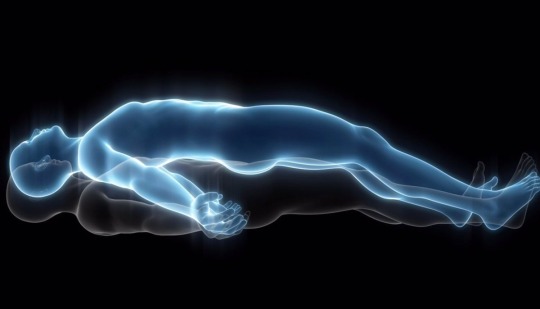
#leafs lb#HE E ENE WIW EN ANDBSOABE NABR FNA R SIWB RBDNW RJS R FNW WISB T WNW. D WNW EOAHW. E RNA AOEJE W W MA S EOW W E. SNWISN R W WKS F WLSJ F V O#OH MY GOD OH MU GLD OH MU GOD AIQ WAOB WME EE ISQ. EX. D EWND EM W#I AM BEYOND SCREAMINV CRYINHA TJROWING UP#I I I J J U IA SMWBWKSBR EKW E FNE I HAV EDECENCEDDS INTO A MILLIN PEICEES#luke schenn
13 notes
·
View notes
Text
Thank You, Jesus, for today, and all it had to offer. From the craziness the morning brought, to the eyes that welled with tears when You spoke to our hearts and said, “I’ve called you by name. I love you, and you are Mine.” Thank You for the rare opportunities today held. Thank You for the laughs we shared, the friends we made, and the hugs we sank into. Thank you, Lord, for calling us. Thank You for choosing us.
Amen.
#Christian#christian faith#jesus christ <3#christ#catholic#roman catholic#you are mine#you are loved#i have called you by name#i have chosen you#chosen#set the world on fire#shake the world#change the world#in jesus name#thank you jesus#allelujah#hallelujah#nabre bible
5 notes
·
View notes
Text
i just... really want him to b w/ me
ik he thinks about me
& ik he misses me
so whats the hold up 😭
0 notes
Text
Which of the following ionic compounds would be expected to have the highest lattice energy NaF Nai NaBr nacl?

Which compound has the highest lattice energy?
Which of the following ionic compounds would be expected to have the highest lattice energy NaF Nai NaBr nacl?
How do you know which compound has the larger lattice energy?
Which of the ionic compound has highest lattice energy?
Which of the following ionic compound has highest lattice energy NaF NaCl?
Which of the following compounds has the highest lattice energy NaCl NaBr NaF NaI?
Which of the following ionic compounds would have the highest lattice energy?
Which ionic compound has higher lattice energy MgO or NaF?
How do you know which compound has a higher lattice energy?
Which compound has the biggest lattice energy?
Which ionic compound has highest lattice energy?
Which of the following compounds have highest lattice energy?
Which of the following has highest lattice energy LiCl caf2 Cao?
Which has highest lattice energy NaCl or NaF?
Which of the following ionic compound has highest lattice energy a NaF B NaCl C AIF?
Which has greater lattice energy NaF or NaI?
Which has greater lattice energy NaCl or NaBr?
Which has more lattice energy NaCl or NaF?
Which of the following compounds has the highest lattice energy 1 point NaCl NaBr NaF NaI?
#Which of the following ionic compounds would be expected to have the highest lattice energy NaF Nai NaBr nacl#Bookvea
0 notes
Text
Lambert being a menace and casually looking smug while being proud of his fav good boi follower for out living everyone who wants him gone
(he calls this 'Disrespect from the innocence')
(he gave the skull necklace to Nabre on purpose cus he keeps on receiving quests from the other followers to imprison/sacrifice Nabre when he's been a good boi gathering wood all the time)
👇🏻this is Nabre👇🏻
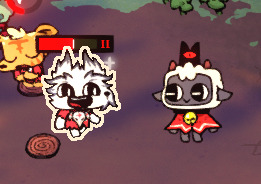
And yes in my style all the followers are lil goobers✨
#cult of the lamb#cotl lamb#cult of the lamb lambert#cotl#lambert#cotl lambert#cotl follower#cult of the lamb follower#follower#Lambert is that bitch#menace#goober#random#ibispaintx#digital art#animation#lil dance
57 notes
·
View notes
Text
eucharistia (this is how meat loves meat)
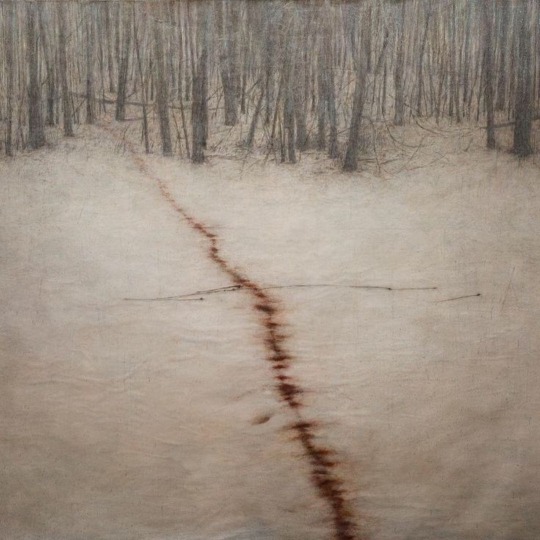
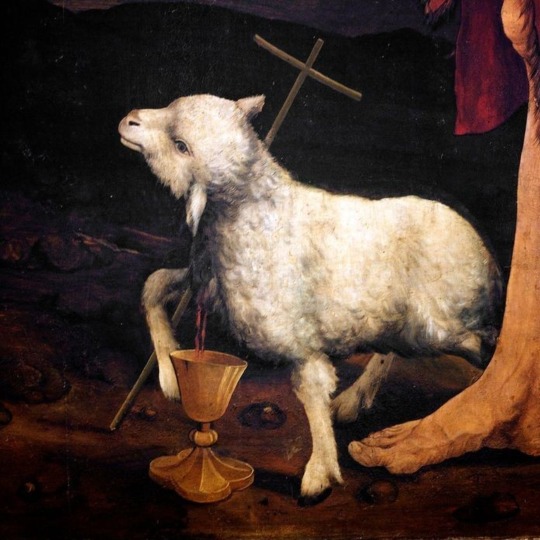
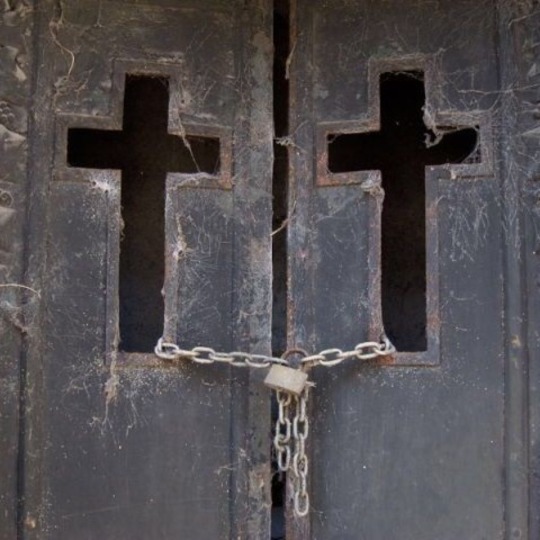
In Rachamps, just before Easy is sent to Haguenau, Eugene Roe brings Babe Heffron to Father John Maloney for his first confession in seven years.
Jesus said to them: "Amen, amen, I say to you, unless you eat the flesh of the Son of Man and drink His blood, you do not have life within you. Whoever eats my flesh and drinks my blood has eternal life, and I will raise him on the last day. For my flesh is true food, and my blood is true drink. Whoever eats my flesh and drinks my blood remains in me and I in him." John 6:53-59, NABRE
read it on ao3
tw: Magical Realism, Horror, Religion as Justification for Unhinged Behavior, Catholicism, Catholic Imagery, Bastogne, Canon Typical Violence, Canonical Character Death, Blood & Gore, Depictions of a Corpse, Cannibalism
---
“Forgive me Father, for I have sinned,” says the boy with hair like copper and a face white as a sheet, kneeling before me. He breathes deep, breathes slow, then looks to his companion who guards the door of this little hide-away. A boy of even paler complexion, who nods in encouragement. A small, minute movement that somehow takes from him a great toll. His dark head bows with the weight of it.
Disturbed by this image, the boy quickly continues: “I haven’t confessed since I was fifteen. I’m twenty-two now. It’s been seven years.”
“That’s alright.” Silence. Nervous, jittery silence. “Go on.”
More silence. Long and dark and cold and damp, the cavernousness of this large and leaky house of God echoing each drip and drop of water across empty space. Empty. Like nobody’s home.
“I’ve done so many things,” the boy says, tipping his face into his hands in despair. “So many, Father.”
“Don’t name them all. We’ll be here all night.” An attempt at good humor. “Just the ones that have brought you before me.”
“Oh, Father,” says the boy, in a whisper that sounds like a wail. “Father. I kept my promise.”
“That doesn’t sound like a sin.”
No, says a voice from the depths of the boy’s eyes. A wailing, lamenting voice, a darkness that threatens to crawl forth from the open wound of his face, and reach out to me with cold, blood-damp hands. No, Father, you don’t understand.
“Make me,” I say, taking his face in my hands and holding it steady. “Babe, tell me what you did.”
His watcher has closed the door on us now. All of us. He stands before it, weight against the wood, hands behind his back. His head is still bowed, upper body almost perpendicular to the stone floor, but his eyes meet mine. Deep blue so dark it’s almost black, staring out from behind a dark brow. Piercing. Waiting. “Go on, Heffron,” he says, voice a deep, unwavering thing. The voice of an Angel. “Don’t be afraid.”
“Don’t be afraid,” I echo. But not for him.
Sprawled against the walls, our shadows continue to flicker.
Babe tries again. “Forgive me, Father. For I have sinned. It’s been seven years since my last confession. My sins—”
Are many. Too many.
“But this one—”
The night he’d gone back for him was clear and bright, the clouds of Bastogne disappearing, momentarily, laying the already barren world of snow white and cold even more bare, absent of the broken shadows of looming trees and the shape of men beyond the mist. Even the looming cold that had settled into their bones seems to have alleviated, somewhat. Still there, but suspended, momentarily, as the fog lifted and Bastogne became just another forest.
But the dread remained. So deep in the marrow of them all that it pulled him out of dreamless sleep; roused suddenly in his shallow grave-bed and forced into the nightmare of this tangible unreality, an endless waking, by the familiar urge to rungotta go get him sir rundangerrun take him with us runrunrunRUN—
And a voice, beyond the light of the moon.
“I felt it, Father. Like… Like I was on one end of the rope, and he was on the other. Pulling me toward him. He showed me where to go, Father, you gotta believe me. I was being led—”
Like a lamb to the slaughter.
No.
Like a pilgrim to his god.
Through snow drifts and trees, down familiar paths made unfamiliar through the sudden clarity of pale moonlight. He found the broken body soon enough. Just where they had left it, earlier that day, but this time devoid of all material things.
The Germans had stripped him, just as he had feared. Taken with them trophies of olive-green pelt, rifle antlers, and silver dog tag bones. What lay in their wake was the naked body of a slaughtered child, lying in the snow, a crater of bone and flesh where his neck should be. Blue eyes upturned to Babe’s face.
Hand outstretched.
Beckoning.
“I touched him, Father. I touched him. And he was warm.”
Not breathing. Warm. Soft. Pliant. Despite hours laying in the snow.
He couldn’t explain it.
But then again, what pilgrim questions a miracle?
“I… I tried to pick him up. I tried.”
Yes. Yes, he had tried. I could see him try. Struggling and panting and finding himself crying, the grief and the desperation manifesting themselves in frustrated tears. They freeze on his cheeks, a record of his suffering. Julian, buddy, c’mon. I gotta get you up. Please. I can’t, I can’t—
But the god is in an immovable shrine. Trapped within and rooted into the snow on the ground.
“All I could lift was his head, Father Maloney. And I held him in my lap, like I used to back when the world made sense.”
Yes. Yes, I could see them there, too. Two boys in basic training, surrounded by pleasant summer heat. Golden light. One with his head in the lap of the other.
Dark hair against pale thighs.
Blue eyes meeting blue.
A smile meeting another smile in a thrilling brush of skin.
God was with them, then.
And it is with the turning of my stomach that I realize, God was with them, here, too.
“What… did you do, Babe?” I ask. I already know the answer. But I must ask.
And the boy looks up at me, open wound for a face, and says with two voices; “I couldn’t leave him there, Father Maloney.”
No. He couldn’t.
He’d brought those unsmiling lips to his mouth, and he’d kissed them one last time. As any pilgrim should.
And then he’d dug his fingers into bone and flesh, and freed his god from his earthly prison.
“I couldn’t—I promised. I said I would. And he told me that I should. He was so warm, Father. And it was so cold. And I was hungry, and Julian always—from the beginning he’d always—when I closed my eyes, I was back there, with him, and he was—”
“Oh, Babe,” I say, opening my arms. Allowing him to fall into them. “Oh, Babe.”
I have long ago accepted that to seek joy in the form of relief of any kind is not a sin. Or at least, should not be. Jesus Christ, Son of God and Man, who enjoyed the taste of wine and bread and the company of prostitutes and degenerates would not consider it a sin. It’s no exception here, where it is common for men to share many things in basic training and in trenches and in Foxholes. Food. Water. Coffee. Things to keep warm. Things to make you feel just a little bit more human. Things to sustain you.
And there are so few things to sustain you, in the frozen hell of Bastogne. In this stomach disguised as a dark forest, a belly to get lost in.
I look toward the door, where the guardian boy stands, still bowed forward (even more so, it seems) and bent at the knees, unable to meet my eyes. Atlas holding up the sky and full of regret. Frozen in commencement of penance, the weight of the world bearing down upon his shoulders.
“There is more to this,” I realize. He does not startle at the sound of my voice, eerily still. “What is it that you aren’t telling me, Eugene?”
In my arms, Babe is quiet. Hitching breaths quick and warm against my throat. Mouth against my rapid beating pulse. Teeth—
“I saw it, Father,” says Eugene, voice ringing clear and deep despite its whispered quality. “I saw them.”
He’d felt Babe stumble out of their foxhole—Spina fast asleep and oblivious to the sudden preternatural quiet and stillness of the world—and followed behind him at a distance, mindful of their vulnerable position but not enough to stop.
“Then there was a moment where I—I couldn’t see ‘im. It got all dark all o’ a sudden, like the moon blinked outta sight. Just for a minute. A kinda dark you can feel.”
Crawling up your skin, looming over you, making all the hairs of your body stand up in response. Like two, large and heavy hands clasping around you. Holding you caged between its palms. An unfortunate butterfly, caught unawares.
Wait, it seemed to say. This is not for you.
“When the dark left and the moon came back, I couldn’t see ‘im.”
But he could hear it.
The wet, moist sound of hands tearing into flesh.
The guttural snarls of an animal tearing into its latest meal.
The crunch of cartilage.
The weeping. The moaning in despair.
In relief.
“I followed it. And I. I saw.”
He pauses. Then looks up at me with pleading eyes, asking for words. Asking for understanding. He does not know, I realize, what to call it. What greeted him in the snow on that fateful night was not any creature he has ever seen or heard of before.
Part-human, part-animal, part-divine. A wretched, blessed chimera. On its hands and knees, hunched over its carrion and feasting, with great relish, upon its steaming insides. The rapidly cooling warmth of fresh death, curling up, up, and away into the frigid, Bastogne night.
“I saw, Father,” Eugene says again. “And I…”
He did nothing.
No, that’s not true.
“I waited. For it to be over.”
And it was soon over.
The chimera could only eat so much, and what he has come to set free has left the altar as soon as the steam had lifted, and once again, the fog had returned, between one blink to the next. A twin to the darkness felt earlier, heavy hands once again clasped about him, but this time, enveloping all of them—voyeur, scavenger, and carrion—all at once.
Eugene took a step forward, afraid to lose sight of him again, and the chimera, startled, lifted its head toward the crunch of snow.
“And that’s when you led him away?” I ask.
Eugene nods. He’d done it when they’d entered here, too. Appearing to me like a grotesque Angel of God in my doorway, two bodies pressed so close together, leaning upon each other for strength, that they became one entity with two heads and eight appendages, illuminated by a column of warm, orange light cutting into the gloom of my assigned billet.
Do not be afraid, one voice had said to its companion, achingly kind. An echo from that night, I imagine, when he’d taken Babe’s hand and brought him back from the brink. Took him away and deposited him into his empty foxhole, melting snow to wipe away the memory of what he had done from his face. Fed him more chocolate, offered him a cup of coffee, to wash the taste from his mouth. Father Maloney, Heffron is here to confess.
“You were right to come to me,” I say to them, easing Babe out of my arms to once again, sit by my feet as I reach out to Eugene, offering my hand. He takes it without much hesitance, lurching forward as if afraid I might recoil from his touch. Gently, I allow him to sink to his knees, and together, both of them look up to me as I stand and dig through my bag for the needed elements. “What a heavy burden you both have shared. What a weight—” I produce what I need, and I turn to them with a smile I hope is kind and reassuring. “It’s alright, now. You may put it down.”
“Father,” says Babe, eyeing the ciborium and chalice in my hands. “Father, what—”
“Let me give you a place to rest,” I tell him, getting on my knees with them, perching the precious relics upon my billet bed so that they may not touch the floor. Crossing myself, I open them, ignoring how both boys scuttle away from me, like rats, who have spent all their lives in the dark, upon the sudden, violent arrival of light. It breaks my heart, how fearful they look upon me, and it strengthens my resolve, once again. Carefully, as I may be during weekly service, I pray over and take into my hands the bread and wine; mere pemmican biscuits from previous rations, and wine I had been given from bombed out churches, mixed with a little water. But in their golden receptacles, they glow with an otherworldly power. True pieces of the Heavenly Host.
I take two of the Flesh into my unworthy hands.
“John Julian was a martyr,” I say, presenting the host to them both and watching as they, cautiously, move toward me, still on their knees, but with their faces tipped toward the light. “A man who had been living, but who’d given his life for the love of you, Babe. His death was swift and quick, there was little pain and little else we could do to keep him with us. It’s those he’s left behind that he ached to comfort—such pain it must have been, for him, to know that you mourned him so deeply.
“And so, he’d asked God and His Angels to hold Death’s hand for far longer, and he called out to you. He was yet Living when you came upon him—how else could he have enticed him to come? How else would he have stayed that warm, that fresh, in order for his body to provide the nourishment that you needed? Therefore, do not be ashamed, Babe. To cannibalize is to feed upon the dead. John Julian was not dead, not while his soul sang to you its precious entreaty.”
Now, he rests, cradled in the soft, warm alcove of Babe’s body.
“He gave his life to you, that you may yet live. Just like our Lord Jesus Christ gave the first Eucharist to His disciples, the night He was to be arrested and taken away from them. He fed them His Living Flesh, so that they may find strength for the coming days. Sustain themselves upon Him.”
Babe comes closer, the tip of his nose lightly brushing the Flesh held in my fingers.
“John Julian was a martyr who has found his final resting place within you,” I press the Sacrament to his mouth, watching it open in anticipation. A gaping maw not unlike a bleeding wound. “Let these Holy Flesh intermingle within you. Let John Julian meet God in your stomach. Turn him into a Saint.”
Babe closes his eyes and his lips close over the Holy communion, his tongue lapping at my fingers.
I let him eat from my unworthy hand.
I watch him swallow. “Your turn, Eugene.”
Eugene looks at me, unblinking. Unfazed. He does not eat from my hand, but instead cups his own to receive it. I place it between his palms and watch him bow his head over it and take it between his teeth. The hard bread makes a loud crunching sound as he crushes it with his molars. He closes his eyes to the symphony of it, and his shoulders fall for the first time since I’ve known him.
“What a weight you have been forced to carry,” I coo, reaching out to cup his face in one of my hands, the other doing the same to Babe. Both boys tip their heads into my hold, and I find myself weeping at how starved they seem to be, for a simple touch that is gentle. Babe, seeing my tears, starts to sniffle with some of his own. “Come, drink the Blood. Let it wash away the taste.”
I tip the wine, carefully, into their open mouths. They drink every last drop.
“There,” I say once they are finished, drawing Babe, who has begun to weep in earnest, to my breast. Against the hollow of my throat, he hiccups, the grief and the relief pouring out of him now that he knows he is allowed. “Oh, Babe.”
“I left him there, Father,” he sobs. “I left him—”
“You did not,” I soothe. “No, Babe, you did not. You came back for him, and now he rests in you—lives in you. This way, he will see home, again. You can bring him home, my boy. He is a part of you now. So long as you are alive, Julian is, also.”
It takes a while, but Babe soon quiets, and hiccupping, sobbing breaths turn even and steady, a sign that he has fallen asleep against me. Peaceful and dreamless, I hope.
Eugene helps me tuck him into my bed, moving the Holy vessels aside to make room for him.
“Thank you, Father,” he says to me, as I replace the sacred items in my pack. I smile at him and he smiles at me from his position on the floor, kneeling by Babe’s head, his hand held tight in the other boy’s grasp, even in deep sleep. “Thank you.”
“Judas ate of the Eucharist.”
This time, Eugene does blink, startled. “… Father?”
“Our Lord Jesus had Judas eat of His Flesh before He revealed him to be the traitor,” I repeat, once again sitting on the floor so that he and I can talk to each other at level. Not once does he tear his eyes away from mine. Brave boy. “He made sure Judas ate so that even when he was apart from Him, betraying Him to the Romans, orchestrating His death, He was always with Judas. Inside him. He loved him very well—perhaps too well. Enough to smother him.” I reach over to tap their clasped hands, gently, with a finger. “There is no position more intimate.”
Eugene’s ears color pink, as if still cold, and I resist the urge to cup my hands around them, so that they may be warm. They’re warm plenty already, I know, and that, at least, makes me smile.
“You are a tenacious one, Eugene Roe,” I tell him, getting up with a groan. He watches me, curious, confused, and I smile at him, amused.
Nobody leaves Bastogne unchanged—undigested, staggering out of that beast’s belly masquerading for a forest. But when one is stubborn, when he is cunning and astute, sure in his footing and determined in his mission, a body trapped could be sustained for long enough that escape is made possible.
“There are many ways a person could be sustained,” I say, running my fingers through his blue-black hair. And, like a cat, he pushes his head into the meat of my palm, affectionate. “You found him, fed him, and you watered him. You made sure to wash it all away, the taste. But shame is a powerful thing, and it almost took him. That would not do.”
Eugene stares up at me. Unflinching.
“And so, you brought him here, to me.”
Because he knew I would nourish him and he would nourish me, gorge ourselves on this story we spin together until hope and faith solidify into truth. He has bargained with Death well; has done so enough times to know how to win. John Julian may have been lost to the violence of Bastogne, but Babe Heffron remains, and Eugene Roe would rather see his own soul rot before he loses him, too.
“The Ignatian way of life dictates that we must strive to see God in all things,” I say, smiling down at him. “Today, you have shown me a Face of God I have not seen before. It brings me comfort, in this world steeped in decay. Thank you.”
Eugene smiles back, a tiny little thing that rapidly disappears when he finally takes his eyes away from me and turns them to Babe, silently contemplating his pale face, deep in sleep.
They’re good boys. I leave them both to each other as I venture back into the bowels of God’s House to search for a quiet place to pray.
---
tagging those who have either helped conceptualize this or who have expressed interest along the way: @bringmefoxgloves @hellofanidea @liebgottsjumpwings @pastexistence
This was supposed to go up on Halloween. But I was on a family trip so I fell behind on editing and putting the final touches in. It's here now, though, and I'm so so proud of it-- something which I could almost never claim about things I've written. I'm very happy it's done, and I hope people enjoy reading it as much as I did writing it.
Finally, I can rest.
#band of brothers#baberoe#babejulian#babe heffron#eugene roe#john julian#fr john maloney#father john maloney#cannibalism tw#cannibalism in bastogne au#this is The Most Catholic Thing I Have Written#estrella_marie
39 notes
·
View notes
Text
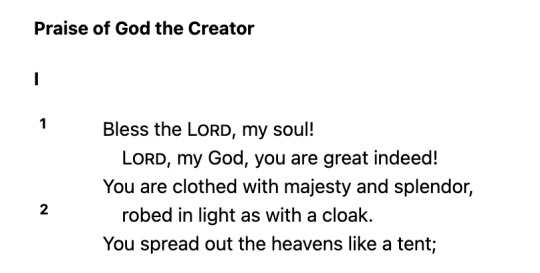
psalm 104:1-2 (nabre)
5 notes
·
View notes
Text

The Wonderful Stream
1 Then he brought me back to the entrance of the temple, and there! I saw water flowing out from under the threshold of the temple toward the east, for the front of the temple faced east. The water flowed out toward the right side of the temple to the south of the altar. 2 He brought me by way of the north gate and around the outside to the outer gate facing east; there I saw water trickling from the southern side. 3 When he continued eastward with a measuring cord in his hand, he measured off a thousand cubits and had me wade through the water; it was ankle-deep. 4 He measured off another thousand cubits and once more had me wade through the water; it was up to the knees. He measured another thousand cubits and had me wade through the water; it was up to my waist. 5 Once more he measured off a thousand cubits. Now it was a river I could not wade across. The water had risen so high, I would have to swim—a river that was impassable. 6 Then he asked me, “Do you see this, son of man?” He brought me to the bank of the river and had me sit down. 7 As I was returning, I saw along the bank of the river a great many trees on each side. 8 He said to me, “This water flows out into the eastern district, runs down into the Arabah and empties into the polluted waters of the sea to freshen them. 9 Wherever it flows, the river teems with every kind of living creature; fish will abound. Where these waters flow they refresh; everything lives where the river goes. 10 Fishermen will stand along its shore from En-gedi to En-eglaim; it will become a place for drying nets, and it will abound with as many kinds of fish as the Great Sea. 11 Its marshes and swamps shall not be made fresh, but will be left for salt. 12 Along each bank of the river every kind of fruit tree will grow; their leaves will not wither, nor will their fruit fail. Every month they will bear fresh fruit because the waters of the river flow out from the sanctuary. Their fruit is used for food, and their leaves for healing.”
The New Israel
Boundaries of the Land. 13 Thus says the Lord God: These are the boundaries of the land which you shall apportion among the twelve tribes of Israel, with Joseph having two portions. 14 You shall apportion it equally because I swore to give it to your ancestors as a heritage; this land, then, is your heritage. 15 These are the borders of the land: on the northern side, from the Great Sea in the direction of Hethlon, Lebo-hamath to Zedad, 16 Berothah, and Sibraim, along the frontiers of Damascus and Hamath, to Hazar-enon, on the border of Hauran. 17 Thus the border extends from the sea to Hazar-enon, north of the border of Damascus, the frontier of Hamath to the north. This is the northern boundary. 18 The eastern border shall be between Damascus and Hauran, while the Jordan will form the border between Gilead and the land of Israel down to the eastern sea as far as Tamar. This is the eastern boundary. 19 The southern border shall go southward from Tamar to the waters of Meribath-kadesh, on to the Wadi of Egypt, and into the Great Sea. This is the southern boundary. 20 The western border shall have the Great Sea as a boundary as far as a point opposite Lebo-hamath. This is the western boundary.
The Northern Portions
21 You shall divide this land according to the tribes of Israel. 22 You shall allot it as heritage for yourselves and for the resident aliens in your midst who have fathered children among you. You shall treat them like native Israelites; along with you they shall receive a heritage among the tribes of Israel. 23 In whatever tribe the resident alien lives, there you shall assign his heritage—oracle of the Lord God.
— Ezekiel 47 | New American Bible Revised Edition (NABRE)
New American Bible, revised edition © 2010, 1991, 1986, 1970 Confraternity of Christian Doctrine, Inc. All Rights Reserved.
Cross References: Genesis 2:9; Genesis 13:10-11; Genesis 14:15; Genesis 48:5; Exodus 15:25; Numbers 34:3; Numbers 34:7,8 and 9; Judges 3:3; Deuteronomy 1:8; Deuteronomy 3:17; Deuteronomy 10:19; Deuteronomy 29:23; Isaiah 11:9; Ezekiel 8:6; Ezekiel 40:3; Ezekiel 40:35; Ezekiel 45:1; Matthew 4:19; John 4:14; Acts 11:18; Revelation 22:1-2; Revelation 22:17
#waters from under the Temple#new Israel#the borders of the land#Ezekiel 47#Book of Ezekiel#Old Testament#NABRE#New American Bible Revised Edition Bible#Confraternity of Christian Doctrine Inc.
3 notes
·
View notes
Text

Surely He Has Borne Our Griefs, by J. Kirk Richards, oil on panel.
Then Jesus said to His disciples, "Whoever wishes to come after Me must deny himself, take up his cross, and follow Me. For whoever wishes to save his life will lose it, but whoever loses his life for My sake will find it. What profit would there be for one to gain the whole world and forfeit his life? Or what can one give in exchange for his life? For the Son of Man will come with His angels in His Father's glory, and then He will repay everyone according to his conduct."
the Gospel According to Matthew (16:24-27)
To deny someone is to disown him, and to deny oneself is to disown oneself as the center of one's existence.
the NABRE commentary for Matthew 16:24
You may certainly experience peace in the midst of strife, but that happens only when to remove strife you destroy your whole life, you crucify yourself. […] Living Christ means a living Cross. Without it, life is a living death.
Mohandas K. Gandhi, in a 1931 Christmas address given to Christians aboard the S.S. Pilsna
#Christianity#Jesus Christ#Gospel of Matthew#kenosis#Via Crucis#ego#humility#peace#Mahatma Gandhi#Cross
15 notes
·
View notes
Text
Day 100 Ps 17, 35, 54, 63
Day 101 1 Sam 28-31, Ps 18
Day 102 Ps 121, 123-125, 128-130
Day 103 2 Sam 1-4
Day 104 Ps 6, 8-10, 14, 16, 19, 21
Day 105 1 Chron 1-2, Ps 43-45
Day 106 Ps 49, 84-85, 87, I Chron 3-5
Day 107 Ps 73, 77-78, I Chron 6
Day 108 Ps 81, 88, 92-93
Day 109 1 Chron 7-10
Day 110 Ps 102-104
Day 111 2 Sam 5:1-10; I Chron 11-12, Ps 133
Day 112 Ps 106-107, II Sam 5:11-6:23; I Chron 13-16
Day 113 Ps 1-2, 15, 22-24, 47, 68
Day 114 Ps 89, 96, 100-101, 105, 132
Day 115 2 Sam 7, I Chron 17, Ps 25, 29, 33
Day 116 Ps 36, 39, II Sam 8-9, I Chron 18
Day 117 Ps 50, 53, 60, 75
Day 118 2 Sam 10, I Chron 19, Ps 20, 65-67
Day 119 2 Samuel 11-12, Psalms 51, 69-70, 1 Chronicles 20
Day 120 Ps 32, 51, 86, 122
Day 121 2 Sam 13-15, Ps 3-4
Day 122 Ps 12-13, 28, 55, 2 Sam 16-18
Day 123 Ps 26, 40, 58, 61-62, 64
Day 124 2 Sam 19-21
Day 125 Ps 5, 38, 41-42
Day 126 2 Sam 22-23, Ps 57, 95, 97-99
Day 127 2 Sam 24, 1 Chron 21-22, Ps 30
Day 128 Ps 108-110, 1 Chron 23-25
Day 129 Ps 131, 138, 139, 143-145
Day 130 1 Chron 26-29, Ps 127
Day 131 Ps 111-118
Day 132 1 King 1-2, Ps 37, 71, 94
Day 133 Ps 119:1-88, 1 King 3-4, 2 Chron, 1 Ps 72
Day 134 Ps 119: 89-176
Day 135 Song of Solomon
Day 136 Prov 1-4
Day 137 Prov 5-8
Day 138 Prov 9-12
Day 139 Prov 13-16
Day 140 Prov 17-20
Day 141 Prov 21-24
Day 142 1 King 5-6, 2 Chron 2-3
Day 143 1 Kings 7-8, 2 Chron 4-5
Day 144 2 Chron 6-7, Ps 136
Day 145 Ps 134, 146-150
Day 146 1 King 9, 2 Chron 8, Prov 25-26
Day 147 Prov 27-29, Ecc 1-6
Day 148 Ecc 7-12
Day 149 1 King 10-11, 2 Chron 9, Prov 30-31
Day 150 1 Kings 12-14
Day 151 2 Chron 10-12
Day 152 1 Kings 15-16, 2 Chron 13-17
Day 153 1 Kings 17-19
Day 154 1 Kings 20-22, 2 Chron 18
Day 155 2 Chron 19-23
Day 156 Obadiah, Ps 82-83
Day 157 2 Kings 1-4
Day 158 2 Kings 5-8
Day 159 2 Kings 9-11
Day 160 2 Kings 12-13, 2 Chron 24
Day 161 2 Kings 14, 2 Chron 25, Jonah
Day 162 2 Kings 15, 2 Chron 26
Day 163 Is 1-4
Day 164 Is 5-8
Day 165 Amos
Day 166 2 Chron 27, Is 9-12
Day 167 Micah
Day 168 2 Chron 28, 2 Kings 16-17
Day 169 Is 13-17
Day 170 Is 18-22
Day 171 Is 23-27
Day 172 2 Kings 18: 1-8; 2 Chron 29-31; Ps 48
Day 173 Hos 1-7
Day 174 Hos 8-14
Day 175 Is 28-30
Day 176 Is 31-35
Day 177 Is 36-39, Ps 76
Day 178 Is 40-43
Day 179 Is 44-48
Day 180 2 King 18:9-19:37; Ps 46, 80, 135
Day 181 Is 49-53
Day 182 Is 54-58
Day 183 Is 59-63
Day 184 Is 64-66
Day 185 2 Kings 20-21, 2 Chron 32-33
Day 186 Nahum
Day 187 2 Kings 22-23, 2 Chron 34-35
Day 188 Zephaniah
Day 189 Jer 1-4
Day 190 Jer 5-8
Day 191 Jer 9-12
Day 192 Jer 13-16
Day 193 Jer 17-22
Day 194 Jer 23-26
Day 195 Jer 27-30
Day 196 Jer 31-34
Day 197 Jer 35-37
Day 198 Jer 38-40, Ps 74, 79
Day 199 2 Kings 24-25, II Chron 36
0 notes
Text
KJ21
And the Lord God took the man and put him into the Garden of Eden to dress it and to keep it.
ASV
And Jehovah God took the man, and put him into the garden of Eden to dress it and to keep it.
AMP
So the Lord God took the man [He had made] and settled him in the Garden of Eden to cultivate and keep it.
AMPC
And the Lord God took the man and put him in the Garden of Eden to tend and guard and keep it.
BRG
And the Lord God took the man, and put him into the garden of Eden to dress it and to keep it.
CSB
The Lord God took the man and placed him in the garden of Eden to work it and watch over it.
CEB
The Lord God took the human and settled him in the garden of Eden to farm it and to take care of it.
CJB
Adonai, God, took the person and put him in the garden of ‘Eden to cultivate and care for it.
CEV
The Lord God put the man in the Garden of Eden to take care of it and to look after it.
DARBY
And Jehovah Elohim took Man, and put him into the garden of Eden, to till it and to guard it.
DRA
And the Lord God took man, and put him into the paradise of pleasure, to dress it, and to keep it.
ERV
The Lord God put the man in the Garden of Eden to work the soil and take care of the garden.
EASY
The Lord God took the man and he put him in the Garden of Eden. God wanted the man to work in the garden and to take care of it.
EHV
The Lord God took the man and settled him in the Garden of Eden to work it and to take care of it.
ESV
The Lord God took the man and put him in the garden of Eden to work it and keep it.
ESVUK
The Lord God took the man and put him in the garden of Eden to work it and keep it.
EXB
The Lord God [L took and] put ·the man [or Adam; 1:27] in the garden of Eden to ·care for [or till] it and ·work [take care of; look after] it.
GNV
¶ Then the Lord God took the man, and put him into the garden of Eden, that he might dress it, and keep it.
GW
Then the Lord God took the man and put him in the Garden of Eden to farm the land and to take care of it.
GNT
Then the Lord God placed the man in the Garden of Eden to cultivate it and guard it.
HCSB
The Lord God took the man and placed him in the garden of Eden to work it and watch over it.
ICB
The Lord God put the man in the garden of Eden to care for it and work it.
ISV
The Lord God took the man and placed him in the Garden of Eden in order to have him work it and guard it.
JUB
And the LORD God took the man and put him into the garden of Eden to dress it and to keep it.
KJV
And the Lord God took the man, and put him into the garden of Eden to dress it and to keep it.
AKJV
And the Lord God took the man, and put him into the garden of Eden to dress it and to keep it.
LSB
Then Yahweh God took the man and set him in the garden of Eden to cultivate it and keep it.
LEB
And Yahweh God took the man and set him in the garden of Eden to cultivate it and to keep it.
TLB
The Lord God placed the man in the Garden of Eden as its gardener, to tend and care for it.
MSG
God took the Man and set him down in the Garden of Eden to work the ground and keep it in order.
MEV
The Lord God took the man and put him in the garden of Eden to till it and to keep it.
NOG
Then Yahweh Elohim took the man and put him in the Garden of Eden to farm the land and to take care of it.
NABRE
The Lord God then took the man and settled him in the garden of Eden, to cultivate and care for it.
NASB
Then the Lord God took the man and put him in the Garden of Eden to cultivate it and tend it.
NASB1995
Then the Lord God took the man and put him into the garden of Eden to cultivate it and keep it.
NCB
The Lord God took the man and placed him in the Garden of Eden so that he might work it and care for it.
NCV
The Lord God put the man in the garden of Eden to care for it and work it.
NET
The Lord God took the man and placed him in the orchard in Eden to care for it and to maintain it.
NIRV
The Lord God put the man in the Garden of Eden. He put him there to farm its land and take care of it.
NIV
The Lord God took the man and put him in the Garden of Eden to work it and take care of it.
NIVUK
The Lord God took the man and put him in the Garden of Eden to work it and take care of it.
NKJV
Then the Lord God took the man and put him in the garden of Eden to tend and keep it.
NLV
Then the Lord God took the man and put him in the garden of Eden to work the ground and care for it.
NLT
The Lord God placed the man in the Garden of Eden to tend and watch over it.
NRSVA
The Lord God took the man and put him in the garden of Eden to till it and keep it.
NRSVACE
The Lord God took the man and put him in the garden of Eden to till it and keep it.
NRSVCE
The Lord God took the man and put him in the garden of Eden to till it and keep it.
NRSVUE
The Lord God took the man and put him in the garden of Eden to till it and keep it.
OJB
And Hashem Elohim took the adam and put him in the Gan Eden la’avod (to till, to work) it and to be shomer over it.
RSV
The Lord God took the man and put him in the garden of Eden to till it and keep it.
RSVCE
The Lord God took the man and put him in the garden of Eden to till it and keep it.
TLV
Then Adonai Elohim took the man and gave him rest in the Garden of Eden in order to cultivate and watch over it.
VOICE
The Eternal God placed the newly made man in the garden of Eden in order to work the ground and care for it.
WEB
Yahweh God took the man, and put him into the garden of Eden to cultivate and keep it.
WYC
Therefore the Lord God took man, and set him in (the) paradise of liking, that he should work and keep it. (And so the Lord God took the man, and put him in the Garden of Eden, so that he would work it, and care for it.)
YLT
And Jehovah God taketh the man, and causeth him to rest in the garden of Eden, to serve it, and to keep it.
8 notes
·
View notes
